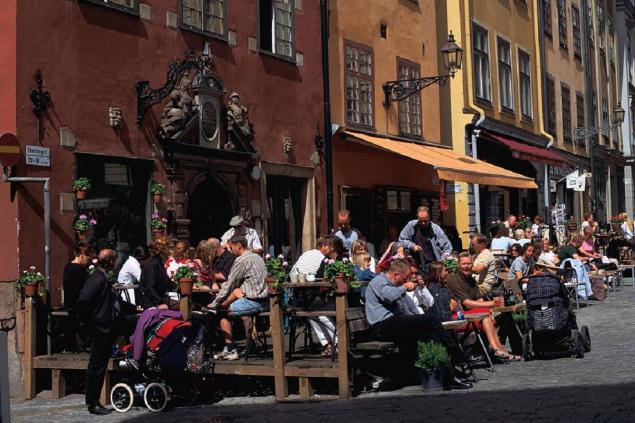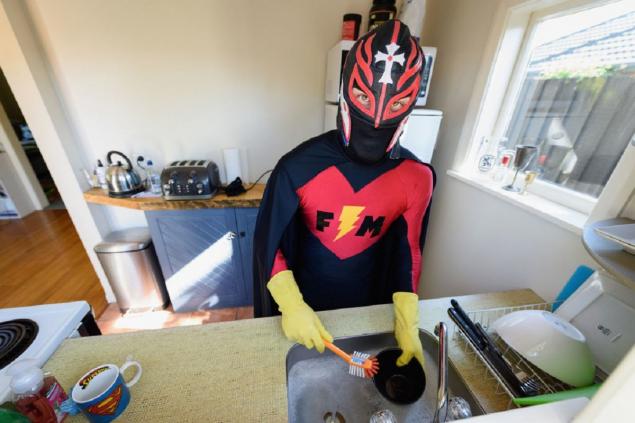187
What habits did I have to give up when I moved to Finland?
Can I move to Finland? Are you from any CIS country and not at all worried about your “local” habits and mentality? Of course it is. Finns are quite friendly and patient people, however, if you still want to assimilate faster, our few simple tips will help you with this.

As in any group, people can differ in their cultural habits, outlook on the world and, ultimately, character. This is a normal part of human psychology and there is nothing wrong with it. On the other hand, in order not to be known as a “white sheep” in society, it does not hurt to at least familiarize yourself with its internal rules.
Can I move to Finland? Frequent habits of our people that Finns do not like
This habit is deeply embedded in our homes and apartments. For example, the husband can come home after work, and the wife, as often happens, imposes her portion on him. That is, fully controls the portion size and its contents. To somehow change the situation, you can only ask for supplements: to reduce the amount of food will not work.

This habit also applies to young children, especially grandchildren. You can't spoil your grandmother and you don't want to, and you have to eat a full plate. This is our cultural code, everything is done not for evil, but for love. Harsh and without choice.
The Finns have their own views on this. At least at a holiday, at least just at home, each eater imposes a dish on himself. Of course, we do not take into account very young children or old relatives. But in most cases, everything happens on this principle.

Someone may have eaten before. No one eats a product, so why force it? Moreover, Finns believe that in this way children will become more adult and more social: take and put on a plate what you want, and even with other adults – the act of a serious adult, not a shy little child. Let it be inside.
It is also interesting that on big holidays in Finland it is customary to serve a separate device for any garbage: peels, bones. Therefore, the need for outside help in overlaying food disappears completely.
If we have a sponge - the first assistant, and even the most inexperienced hostess knows which side is easier to wash, but the Finns everything is quite different.

In our case, it seems that a well-foamed sponge material will help to wash any, even the most stagnant fat, and in general it is. Finns believe that brushes are real assistants.
Sponges are used much more actively than a brush, and from this they become unusable much faster. In addition, with a wide selection of sponges, it is unclear which of the proposed models will be more reliable, and it often happens that the whole package is not enough even for a month.

Finns do not worry about this at all: a brush with a long handle is well suited for dishes of any shape, and its bristles can penetrate anywhere. The only thing you need to learn how to foam the cleaning product and understand how it is more convenient to manage. And then it's gonna go smoothly.
In the past, perfumes and perfumes were considered something quite sublime and scarce. No, of course, in the country they made a line of bottles with odorous liquid inside, but the choice was so short, and the smells themselves were so annoying that fashionistas in the past only dreamed of scarce perfumes from abroad.

Now this good on the shelves in bulk, suitable for any wallet. And our people, perhaps out of habit, like to use fragrant toilet water directly beyond measure. This has led to misunderstandings among the local population in Finland. There, people are not used to exuding too strong aromas, except perhaps fresh soap.
And do not forget about allergies: people may have problems with foreign smells at the level of rejection by the whole body. In short, Finns dislike people with strong scents, that's true.

But it's not just the smells that can irritate patient Finns. Too catchy cosmetics and a large number of jewelry, too, in their opinion, will look provocative. Finnish women and men try to look as restrained as possible. Weak natural makeup and one or two discreet jewelry look great on local women. Don't talk about men!
In Finland, handing over plastic and glass containers in specialized places and automatic bins, you can get either money or discounts in grocery stores. It is very convenient for those who like to see the results with their own eyes. The plastic is sorted and recycled, and the glass containers are simply washed off and filled again.

Something similar was once ours, but now everything is completely different: bottles somehow fall into the garbage and then somehow distributed for further processing. However, this leads to overcrowded landfills and a pile of ownerless containers that lie idle within the city limits.
What do you say, dear reader, what habits of other cultures do you not like and why? This is a very interesting question, because it allows you to find out how we really differ and for what reasons.

As in any group, people can differ in their cultural habits, outlook on the world and, ultimately, character. This is a normal part of human psychology and there is nothing wrong with it. On the other hand, in order not to be known as a “white sheep” in society, it does not hurt to at least familiarize yourself with its internal rules.
Can I move to Finland? Frequent habits of our people that Finns do not like
This habit is deeply embedded in our homes and apartments. For example, the husband can come home after work, and the wife, as often happens, imposes her portion on him. That is, fully controls the portion size and its contents. To somehow change the situation, you can only ask for supplements: to reduce the amount of food will not work.

This habit also applies to young children, especially grandchildren. You can't spoil your grandmother and you don't want to, and you have to eat a full plate. This is our cultural code, everything is done not for evil, but for love. Harsh and without choice.
The Finns have their own views on this. At least at a holiday, at least just at home, each eater imposes a dish on himself. Of course, we do not take into account very young children or old relatives. But in most cases, everything happens on this principle.

Someone may have eaten before. No one eats a product, so why force it? Moreover, Finns believe that in this way children will become more adult and more social: take and put on a plate what you want, and even with other adults – the act of a serious adult, not a shy little child. Let it be inside.
It is also interesting that on big holidays in Finland it is customary to serve a separate device for any garbage: peels, bones. Therefore, the need for outside help in overlaying food disappears completely.
If we have a sponge - the first assistant, and even the most inexperienced hostess knows which side is easier to wash, but the Finns everything is quite different.

In our case, it seems that a well-foamed sponge material will help to wash any, even the most stagnant fat, and in general it is. Finns believe that brushes are real assistants.
Sponges are used much more actively than a brush, and from this they become unusable much faster. In addition, with a wide selection of sponges, it is unclear which of the proposed models will be more reliable, and it often happens that the whole package is not enough even for a month.

Finns do not worry about this at all: a brush with a long handle is well suited for dishes of any shape, and its bristles can penetrate anywhere. The only thing you need to learn how to foam the cleaning product and understand how it is more convenient to manage. And then it's gonna go smoothly.
In the past, perfumes and perfumes were considered something quite sublime and scarce. No, of course, in the country they made a line of bottles with odorous liquid inside, but the choice was so short, and the smells themselves were so annoying that fashionistas in the past only dreamed of scarce perfumes from abroad.

Now this good on the shelves in bulk, suitable for any wallet. And our people, perhaps out of habit, like to use fragrant toilet water directly beyond measure. This has led to misunderstandings among the local population in Finland. There, people are not used to exuding too strong aromas, except perhaps fresh soap.
And do not forget about allergies: people may have problems with foreign smells at the level of rejection by the whole body. In short, Finns dislike people with strong scents, that's true.

But it's not just the smells that can irritate patient Finns. Too catchy cosmetics and a large number of jewelry, too, in their opinion, will look provocative. Finnish women and men try to look as restrained as possible. Weak natural makeup and one or two discreet jewelry look great on local women. Don't talk about men!
In Finland, handing over plastic and glass containers in specialized places and automatic bins, you can get either money or discounts in grocery stores. It is very convenient for those who like to see the results with their own eyes. The plastic is sorted and recycled, and the glass containers are simply washed off and filled again.

Something similar was once ours, but now everything is completely different: bottles somehow fall into the garbage and then somehow distributed for further processing. However, this leads to overcrowded landfills and a pile of ownerless containers that lie idle within the city limits.
What do you say, dear reader, what habits of other cultures do you not like and why? This is a very interesting question, because it allows you to find out how we really differ and for what reasons.
What to plant next to cabbage so that it is not sharpened by pests
Domestic quirks of New Zealand residents, which are unrealistic to forget























